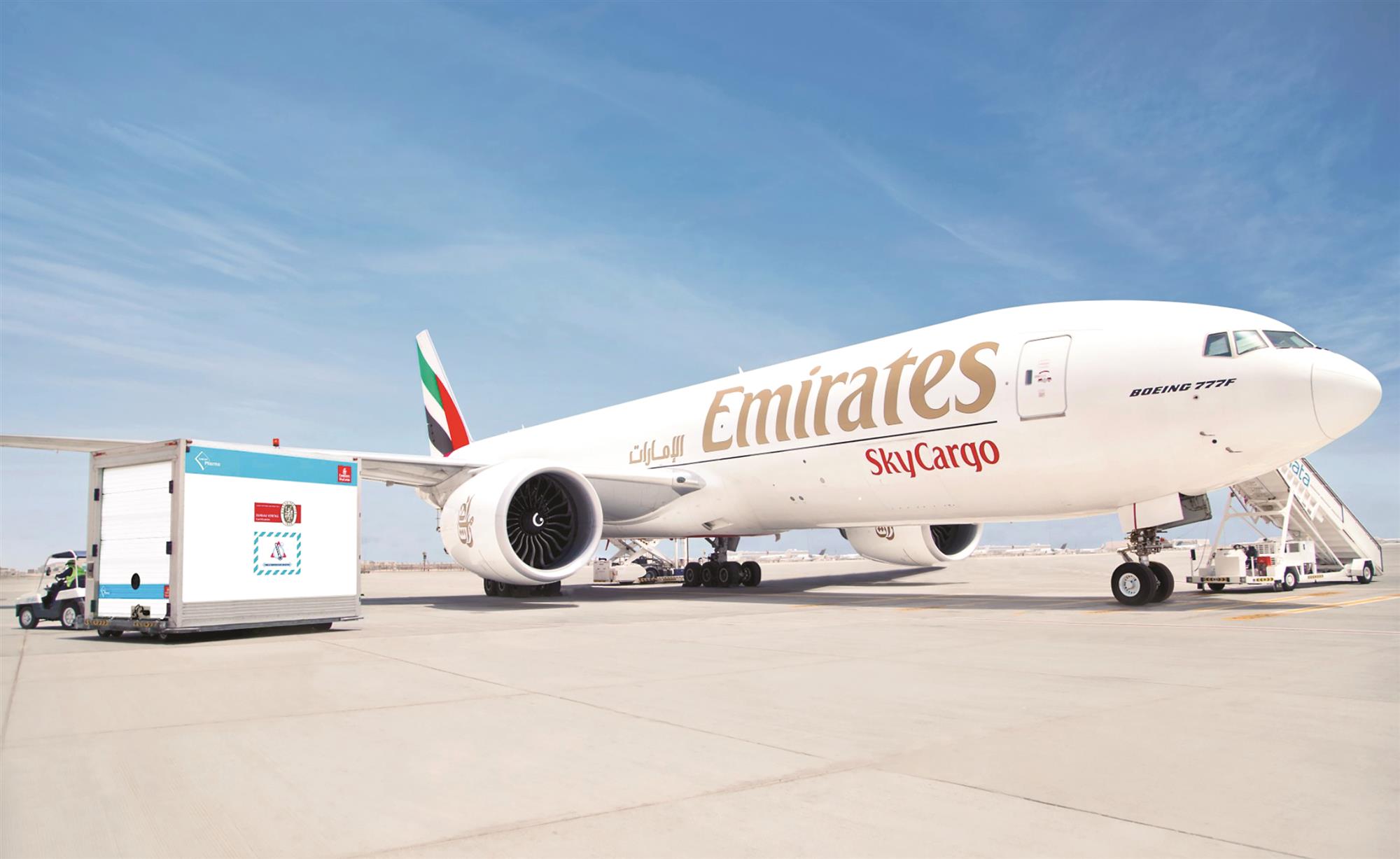Manpower is emerging as one of the biggest challenges the cargo arm of Emirates faces, Nabil Sultan, divisional senior vice president of Emirates SkyCargo, said during an interview at the Dubai Air Show.

“There’s so many [challenges],” he said. When pressed, Sultan acknowledged labour both in its own operations and others’, such as airports and ground handlers, as a key concern. “The manpower, and being able to get adequate manpower to be able to deal with this ever-growing demand,” he said.
Sultan provided two startling examples of the labour challenges facing the airline. “The United States at the moment is probably the most challenging,” he said, noting that a ship which has been unloaded after a two- or three-month wait offshore can then see its cargo wait dockside for up to two weeks before a driver becomes available.
This is a problem common to both the U.S. and Europe, exacerbated by the age of the drivers and their lack of replacements as younger people seek employment in other fields. “The new generation doesn’t want to work in that. Forget it. They don’t want to be truckers,” he said.
Different problems are found in Asia, which he said “continues to be a major challenge with all the lockdown restrictions we have at some of the airports where we operate.”
Here, the problem is that crews who have interacted with cargo cannot then handle more.
“They have to go back into quarantine, for 14 days,” he told Asia Cargo News. “In some countries, we have had to reduce capacity to be able to cope, or it just becomes unmanageable.”
Despite this, Emirates is optimistic about its future, both long- and short-term, the executive said.
In the past six months, it moved 1.1 million tons of cargo, an increase of 39% on the same period last year. This is comparable to 2020, when the carrier shifted 1.9 million tons, meaning at the midpoint of the year it has already moved more than half of what it did last year.
Demand is still quite strong,” Sultan told Asia Cargo News, predicting that demand will continue to grow by double digits.
Supporting the carrier has been not just the return of passenger flights, but the conversion of 16 Boeing 777-300ERs by removing the seats, which will give the airline an extra 120 cubic metres per plane – “substantial additional capacity,” or 60-70 tons, Sultan said.
“We try to stretch ourselves to provide the needed capacity to meet the demand,” he told ACN.
What is being moved is flying along traditional routes, with Hong Kong seeing up to 30 freighter flights a week, with Vietnam supporting 23 flights a week. However, “in the last six months, obviously we’ve seen a big change in the mix,” Sultan said.
Vaccines have become key. Emirates moved some 400 million doses year-to-date to 80 different countries. The airline has the reach the situation needed, as well as the ability to move substantial amounts of personal protective equipment and, during India’s pandemic peak, oxygen generators and tanks. There has also been an increase in ecommerce.
There are high hopes for long-term growth as ecommerce takes off in populous Middle Eastern, African and Indian subcontinent countries. After a slow arrival, Sultan compared the change to opening the floodgates.
More surprising, though, is how much the airline is moving because of the modal shift, as congested ports see commodities that used to travel by sea go via plane because, despite the cost, production stops if things such as rubber from Thailand aren’t sent to Chicago by air, Sultan said, using a real-world example.
“We’ve seen a lot of non-traditional cargo,” said Sultan, who expects this phenomenon to continue into next year. “Are we going to be able to handle it?”
Sultan’s optimism stems from the return of passenger, which is in turn triggering capacity, while productions centres are still producing but are unable to send their products by sea and are turning to air freight. Cargo is building up. He believes this situation will support the air cargo sector for “at least another year.”
Nor is he worried about the rising cost of oil: “It’s not something that has never happened before,” he said, noting that Emirates has a young fleet with big competitive advantages against rising oil prices.
Even young people seeking careers other than truck drivers is less of a problem in the long-term, he says, as new technologies such as autonomous trucks and drones will be able to take their places.
By Michael Mackey
Correspondent | Dubai



